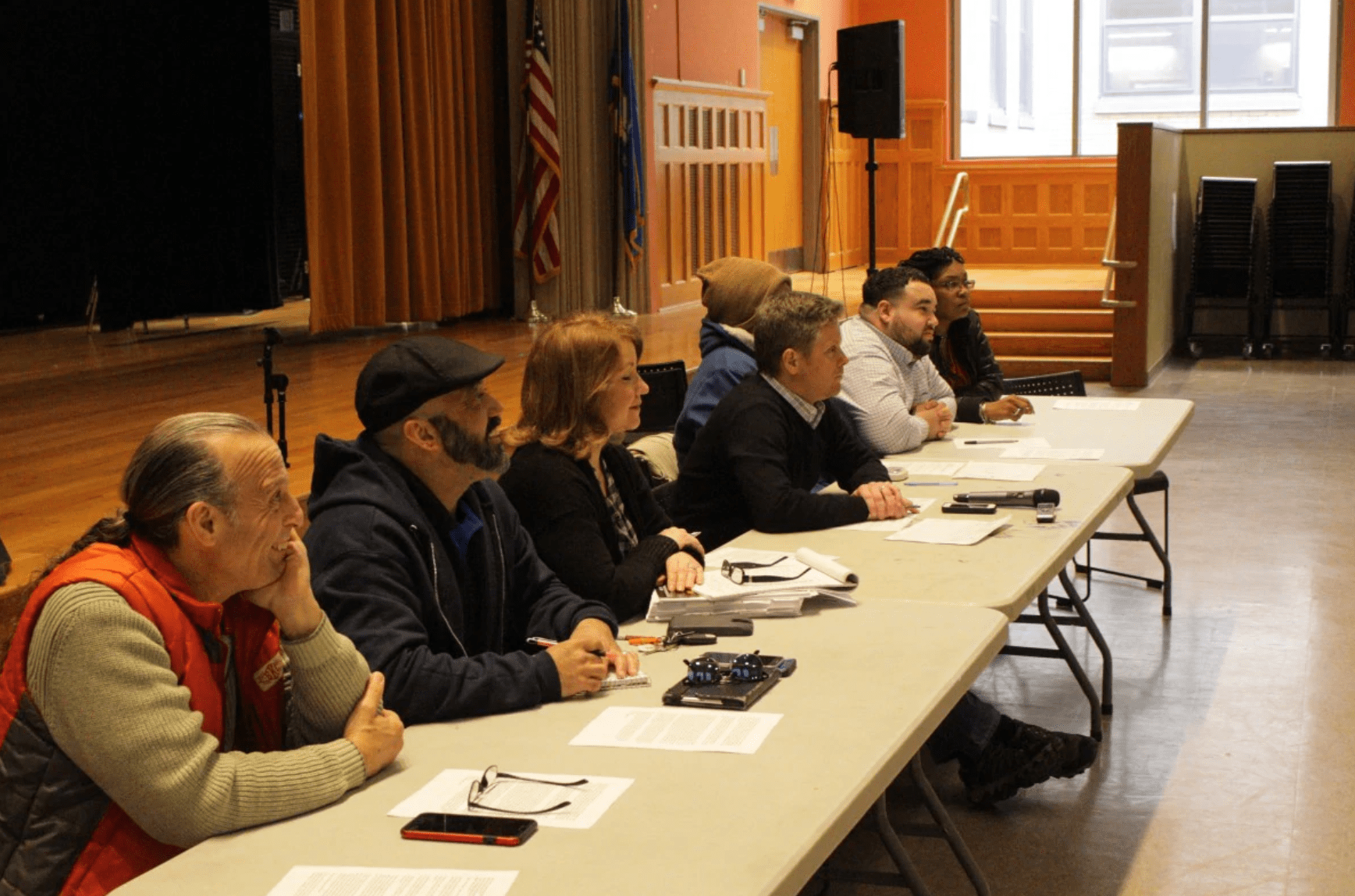
Almost four months after Election Day, thousands of Connecticut residents headed to the polls Tuesday to vote for new state senators and state representatives.
Five districts — the third, fifth and sixth senatorial districts and the 39th and 99th state representative districts — have vacant legislative seats after Gov. Ned Lamont SOM ’80 appointed their occupants to posts in his administration. Democrats will maintain their majorities in both chambers regardless of the special elections. The election, though, offers the first concrete evidence of what voters think of Lamont’s administration and the new legislative session.
Saud Anwar, the Democratic candidate running in the third senatorial district against Republican Sarah Muska, was the first candidate to declare victory, doing so around 8:30 p.m. on Tuesday.
“A campaign takes literally a village to elect a senator,” Anwar said in his victory speech on Tuesday. “And this was a village that was created in a very short time.”
Chris Soto — the former vice chair of the house appropriations committee who resigned to serve as Lamont’s director of legislative affairs — left office on Jan. 8, followed later that day by deputy majority leader James Albis, who now serves as a senior advisor to the commissioner of energy and environmental protection. State senators Beth Bye, Terry Gerratana and Tim Larson each handed in letters of resignation on Jan. 9 to lead the Office of Early Childhood, to serve as an advisor in the Office of Health Strategy and to serve as the executive director of the Office of Higher Education, respectively. All five legislators who left the assembly are Democrats.
Rep. Derek Slap, D-West Hartford, running in the fifth senatorial district, declared victory over his Republican opponent Bill Wadsworth shortly after Anwar. Slap is a lecturer in the political science department at Yale, and he was recently appointed the CEO of the Connecticut Technology Council. Democrat Anthony Nolan defeated Republican opponent Kat Goulart in the 39th congressional district with a margin of 51 to 15 percent, with Green Party candidate Mirna Martinez garnering 29 percent of the vote.
Not all races ended in victory for the Democrats, however. Republican Joseph Zullo bested his Democratic opponent Josh Balter in the 99th district, which encompasses East Haven. In the sixth senatorial district, GOP nominee Gennaro Bizzarro bested Democrat Rick Lopes.
According to state law, the governor has ten days to issue a writ of election to elect a successor after a seat is vacated. Major party conventions to choose nominees must take place at least 36 days before the election, and the special election is held on the 46th day after the writ of election is issued.
Special elections often see much lower turnout than presidential elections and even midterm elections, according to Online Candidate. As a result, the margin in such elections often comes down to a handful of votes.
“This will be a game of inches,” said Republican candidate Sarah Muska of the third Connecticut senatorial district, in her candidacy announcement speech on Jan. 19.
According to a New York Times analysis of special elections in 2018, special elections across the nation often see higher turnout among Democratic voters than Republicans.
Democrats in the state coasted to victory with ease in the November midterms, riding a nationwide blue wave. The Democratic party brought their margins up to 23–13 in the state Senate and 92–59 in the House, up from a 79–72 Democratic majority in the House and an even 18–18 split in the Senate during the last session.
All five districts up for grabs in the special election were handily won by Democratic candidates in November. Albis and Gerratana garnered the lowest margins of victory, winning 58 and 59 percent of the vote, respectively. Larson and Bye both won with more than 60 percent of the vote, while Soto ran unopposed.
Lamont’s proposed budget loomed large in the campaign as candidates followed party lines on some of the most debated topics in the budget. The Republican candidates tended to oppose higher taxes and new tolls, while the Democratic candidates applauded Lamont’s call for a $15 minimum wage and paid family and medical leave.
“I will fight to raise the minimum wage so folks don’t have to decide between buying groceries or medicine,” said Anthony Nolan, the Democratic candidate in the 39th district, in a statement on Feb. 24.
As a physician, Anwar attributed his desire to run to his desire to reform health care in the state.
“Every day, through my medical practice, I witness the impact of government policies on the health of my patients,” Anwar said in a statement on Feb. 22. “Healthy people lead productive lives. It is also evident that the well-being of those patients is directly connected to the health of our economy.”
The CGA session convened on Jan. 9.
Nathalie Bussemaker | nathalie.bussemaker@yale.edu







